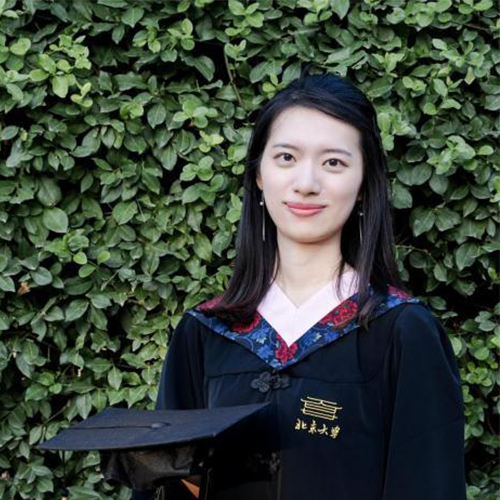Portfolio item number 2
Short description of portfolio item number 2 
Short description of portfolio item number 2 
Published in Transportation Research Part A: Policy and Practice, 2017
Recommended citation: S. Wang and J. Zhao*. (2021). "The distributional effects of lotteries and auctions – License plate regulations in Guangzhou." Transportation Research Part A: Policy and Practice. 106, 473-483.
Published in Transportation Research Part A: Policy and Practice, 2019
Recommended citation: S. Wang and J. Zhao*. (2019). "Risk preference and adoption of autonomous vehicles." Transportation Research Part A: Policy and Practice. 126, 215-229.
Published in Transportation Research Interdisciplinary Perspectives, 2019
Recommended citation: J. Moody, S. Wang, J. Chun, X. Li and J. Zhao*. (2019). "Transportation policy profiles of Chinese city clusters: A mixed methods approach." Transportation Research Interdisciplinary Perspectives. 2, 100053.
Published in International Journal of Sustainable Transportation, 2020
Recommended citation: S. Wang, J. Moody, and J. Zhao*. "What prompts the adoption of car restriction policies among Chinese cities." International Journal of Sustainable Transportation. 1-12.
Published in Transportation research part C: emerging technologies, 2020
Download paper here
Download arxiv here
Github Scripts
Recommended citation: S. Wang, Q. Wang and J. Zhao*. (2020). "Deep neural networks for choice analysis: Extracting complete economic information for interpretation." Transportation research part C: emerging technologies,. 118: 102701.
Published in Journal of Choice Modelling, 2020
Download paper here
Download ArXiv here
Recommended citation: S. Wang*, Q. Wang and J. Zhao. (2020). "Multitask learning deep neural networks to combine revealed and stated preference data." Journal of Choice Modelling. 100236 .
Published in Transportation Research Part C: Emerging Technologies, 2021
Download paper here
Download arxiv here
Recommended citation: S. Wang, B. Mo, and J. Zhao*. (2020). "Deep neural network for choice analysis: Architecture design with alternative-specific utility functions." Transportation Research Part C: Emerging Technologies. 112, 234-251.
Published in Transportation Research Part B: Methodological, 2021
Download paper here
Download ArXiv here
Recommended citation: S. Wang*, B. Mo, and J. Zhao. (2021). "Theory-based residual neural networks: A synergy of discrete choice models and deep neural networks." Transportation Research Part B: Methodological. 146: 333-358.
Published in Transportation Research Part B: Methodological, 2021
Download paper here
ResearchGate
Recommended citation: S. Wang, Q. Wang, N. Bailey, and J. Zhao*. (2021). "Deep neural networks for choice analysis: A statistical learning theory perspective" Transportation Research Part B: Methodological. 148: 60-81.
Published in Transportation Research Part A: Policy and Practice, 2021
Download paper here
ResearchGate
Recommended citation: Y. Zheng, J. Moody, S. Wang, and J. Zhao*. (2021). "Measuring policy leakage of Beijing’s car ownership restriction" Transportation Research Part A: Policy and Practice. 148: 223-236.
Published in Transportation Research Part C: Emerging Technologies, 2021
Download paper here ResearchGate
Recommended citation: Y. Zheng, S. Wang*, and J. Zhao. (2021). "Equality of opportunity in travel demand prediction with deep neural networks and discrete choice models" Transportation Research Part C: Emerging Technologies. 132: 103410.
Published in Journal of Transport Geography, 2021
Recommended citation: H. Kong, P. Meredith-Karam, S. Wang, J. Zhao*. (2021). "The relationship between transportation network companies and public transit in Chicago: a comparison before and after COVID-19 shutdowns." Journal of Transport Geography. 97: 103219.
Published in Journal of Choice Modeling, 2022
Download paper here
Download arxiv here
Recommended citation: S. Cranenburgh*, S. Wang, A. Vij, F. Pereira, and J. Walker. (2022). "Choice modeling in an age of machine learning – discussion paper." Journal of Choice Modeling. 100340.
Published in Proceedings of the 28th ACM SIGKDD International Conference on Knowledge Discovery & Data Mining, 2022
Download paper here
Download arxiv here
Recommended citation: D. Zhuang, S. Wang*, H. Koutsopoulos, and J. Zhao. (2022). "Uncertainty quantification of sparse trip demand prediction with spatial-temporal graph neural networks" Proceedings of the 28th ACM SIGKDD International Conference on Knowledge Discovery & Data Mining
Published in IEEE Transactions on Intelligent Transportation Systems, 2022
Recommended citation: Y. Sun, W. Hu, D. Zhou, B. Mo, K. Fu, Z. Che, Z. Wang, S. Wang, J. Zhao, J. Ye, J. Tang, C. Zhang* (2022). "Alleviating Data Sparsity Problems in Estimated Time of Arrival via Auxiliary Metric Learning." IEEE Transactions on Intelligent Transportation Systems
Published:
This is a description of your talk, which is a markdown files that can be all markdown-ified like any other post. Yay markdown!
Published:
This is a description of your conference proceedings talk, note the different field in type. You can put anything in this field.
Graduate course, Massachusetts Institute of Technology, Department of urban studies and planning, 2019
Introduction. The course explores deep learning (DL) methods for urban mobility applications. Covers concepts of algorithmic prediction, interpretability, causality, and fairness in the context of urban mobility system design and policy making. Topics include demand prediction at both individual and aggregate levels, decision making with and without uncertainty, vehicle and ride sharing, built environment and travel behavior, traffic prediction and control, maps and information provision, and multimodal system design. Students learn intuitions and methods in DNN, CNN, RNN and reinforcement learning, build hands-on models using real-world datasets, and design and implement group projects. At the intersection of machine learning methods and urban mobility applications, the course seeks to reconcile the tension between generic-purpose models and domain-specific knowledge. Furthermore, the course envisions and critically reflects on how machine learning methods shape transportation research and mobility industry, and examines the potentials and pitfalls of their applications in urban mobility business and policies.
Graduate course, University of Florida, Department of Urban and Regional Planning, 2023
Introduction. This course introduces the primary modeling paradigms to analyze cities with an emphasis on analytical perspectives and urban applications. The course consists of four study modules with the first three introducing regression, network science, and machine learning and the module four discussing their integration. The regression module introduces linear and logistic regression from the statistics tradition, applied to the analysis of urban economy and mobility. The network module introduces the spatial networks, spatial regression, power-law scaling, and urban network dynamics. The machine learning module introduces supervised and unsupervised learning, and deep learning with applications to mobility networks and urban imagery. The course discusses the similarities and differences of the three analytical paradigms and introduces how to integrate them in the fourth study module. The course will also provide broad urban analytical perspectives by touching upon optimization, causal inference, generative models, and social justice in cities. Students will learn Python packages, such as Pandas, GeoPandas, and Scikit-learn to analyze urban mobility, economic development, resilience, and housing. This course focuses on intuition and application of the analytical tools to urban topics, rather than theory or math foundations. It provides future urban planners, designers, and engineers the critical analytical capacity to understand cities and address upcoming urban challenges.
Undergraduate and Graduate course, University of Florida, Department of urban and regional planning, 2023
Introduction. The planning, design, and construction of the built environment is on the verge of a fundamental transformation. A key element of this transformation is a radical shift in paradigm from planning and design representations of unconnected data to practices with an overwhelming amount of information-rich data. Artificial Intelligence (AI), in particular Machine Learning (ML), provides planners, designers, and constructors with new models and methods to engage in these data-heavy processes in order to synthesize meaningful information for all areas of their practice from planning to design to fabrication to erection. This course provides the College of Design, Construction and Planning (DCP) students an opportunity to learn about application of AI in their disciplines.
Director  ”
”
Research Associate  ”
”
Research Associate  ”
”
Research Associate  ”
”
Research Associate  ”
”
Research Associate  ”
”